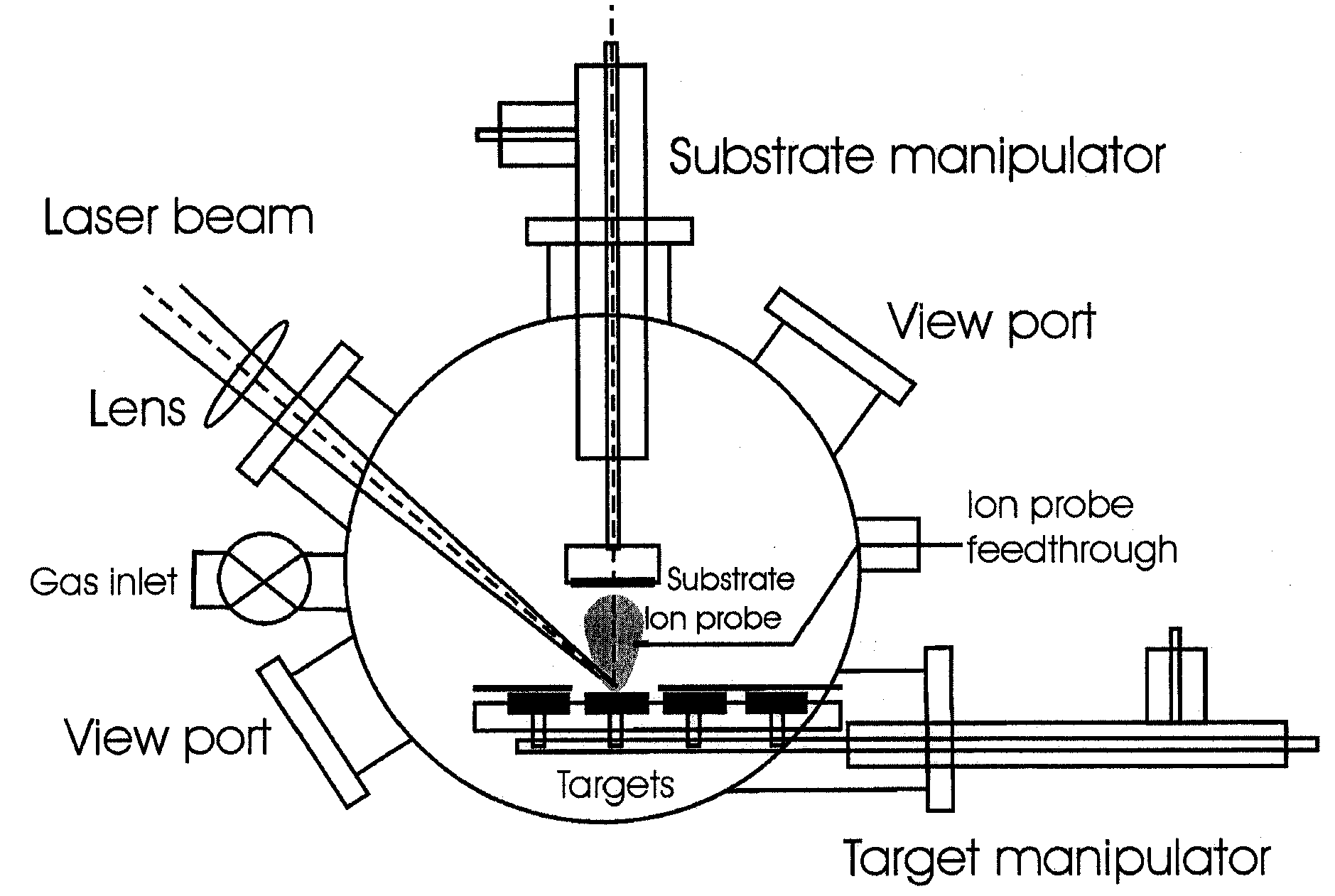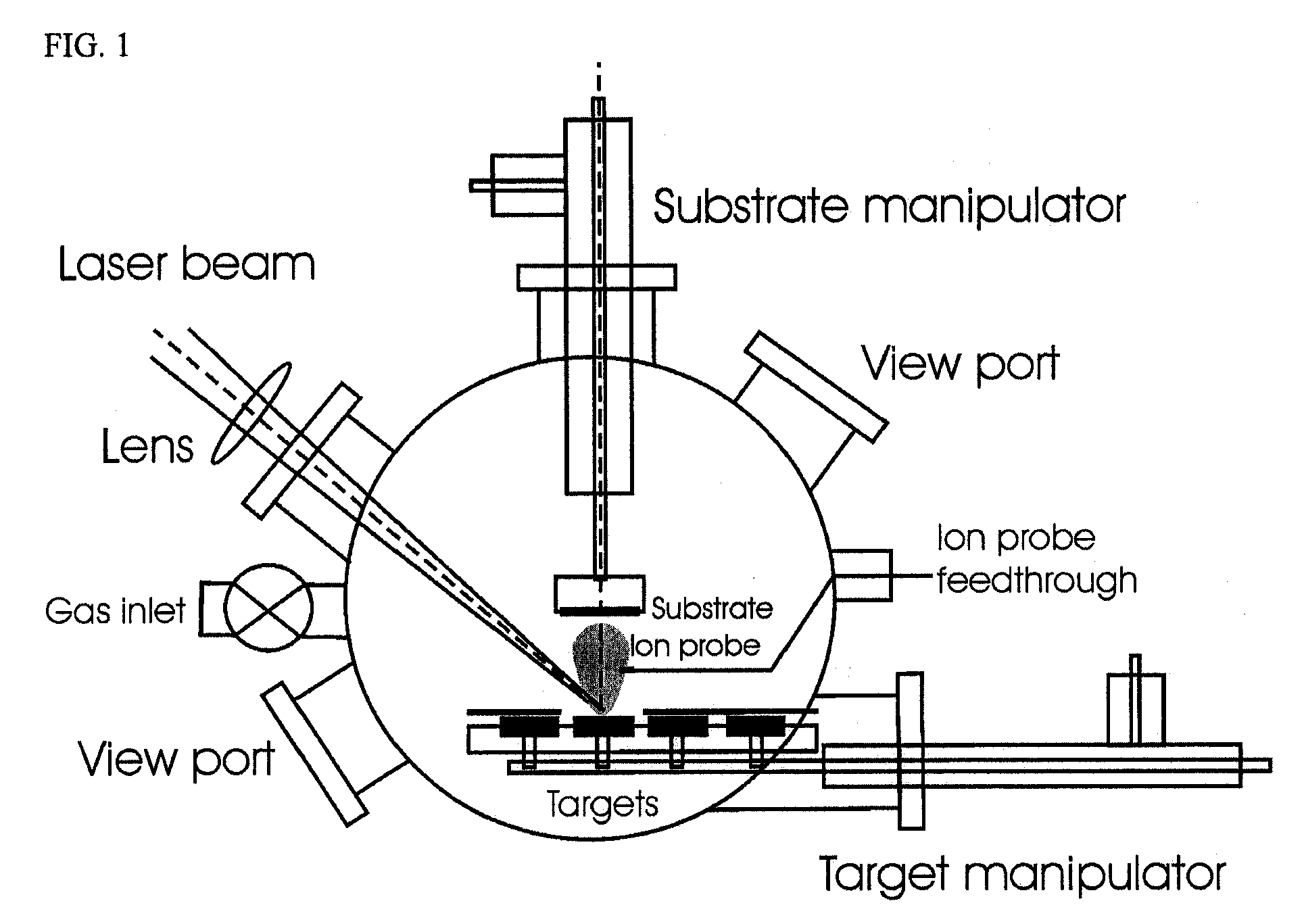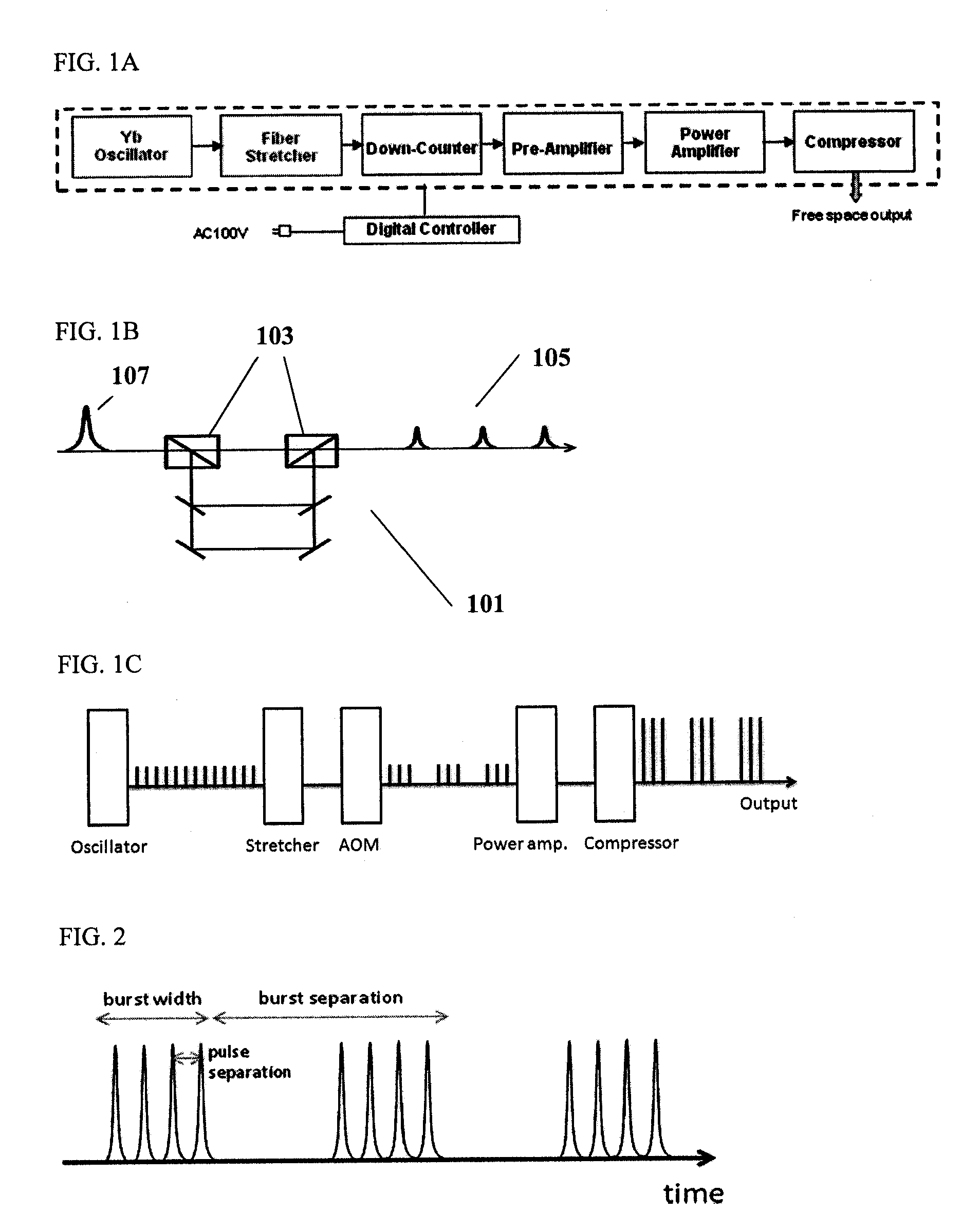Method For Fabricating Thin Films
a thin film and fabrication method technology, applied in plasma technology, vacuum evaporation coating, transportation and packaging, etc., can solve the problems of laser ablation and gradual breakdown of particle siz
- Summary
- Abstract
- Description
- Claims
- Application Information
AI Technical Summary
Benefits of technology
Problems solved by technology
Method used
Image
Examples
Embodiment Construction
[0052]Embodiments of the present PLD invention generally utilize a burst of pulses for material synthesis to tune or otherwise control material morphology. For example, one or more laser pulses may be used to fabricate thin films so as to form distributions of nanoparticles with single ultrashort pulses. Additional pulses of a burst may be utilized to fabricate smooth, nearly particle free-films. Burst parameters, or parameters of pulses within a burst, may be based on known target emission characteristics. For example, a burst width of tens of nanoseconds, hundreds of nanoseconds, and up to several microseconds may be utilized in combination with pulses having a pulse width in a range of about 50 fs to about 100 ps. Generally a first pulse at least initiates a laser interaction with a target material, and at least a second pulse interacts with a by-product of the interaction. The interaction may be laser ablation and the by-product may include plume comprising charged and neutral p...
PUM
| Property | Measurement | Unit |
|---|---|---|
| Time | aaaaa | aaaaa |
| Time | aaaaa | aaaaa |
| Time | aaaaa | aaaaa |
Abstract
Description
Claims
Application Information
 Login to View More
Login to View More - R&D
- Intellectual Property
- Life Sciences
- Materials
- Tech Scout
- Unparalleled Data Quality
- Higher Quality Content
- 60% Fewer Hallucinations
Browse by: Latest US Patents, China's latest patents, Technical Efficacy Thesaurus, Application Domain, Technology Topic, Popular Technical Reports.
© 2025 PatSnap. All rights reserved.Legal|Privacy policy|Modern Slavery Act Transparency Statement|Sitemap|About US| Contact US: help@patsnap.com



